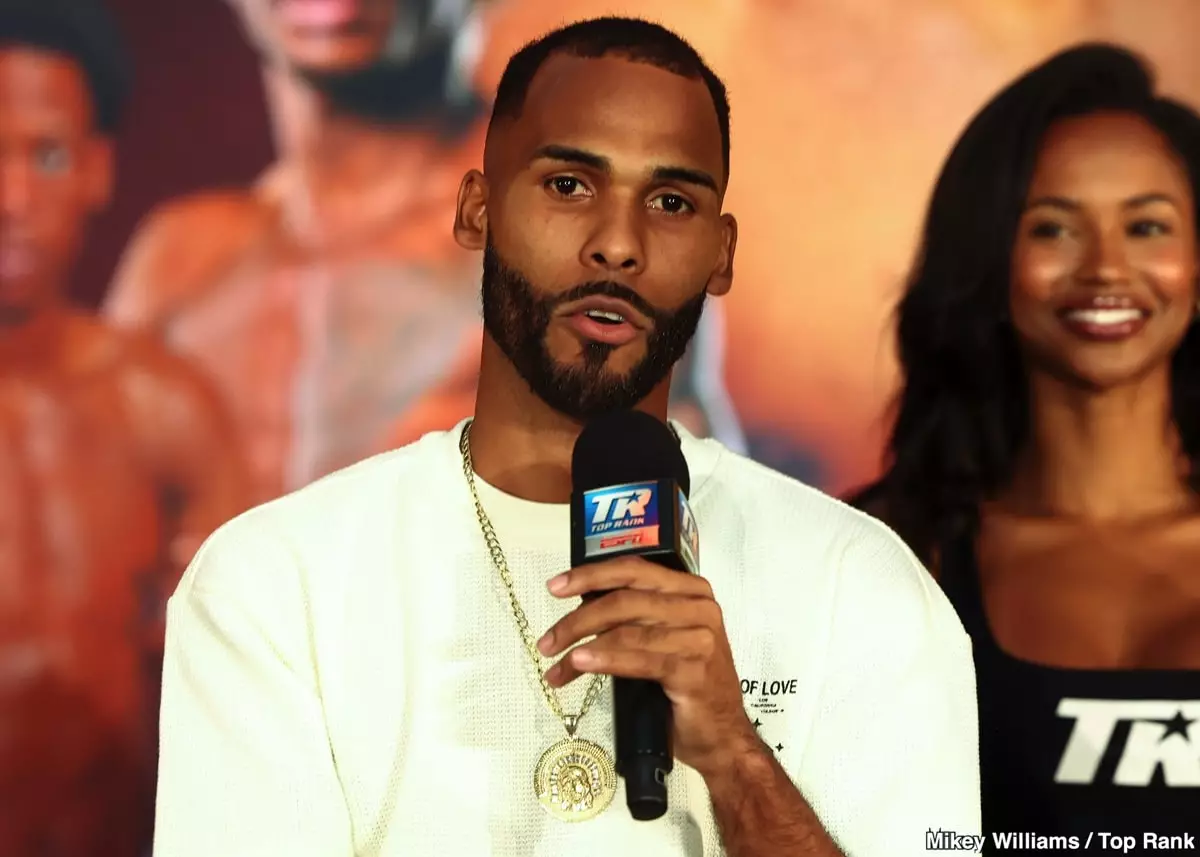In the high-stakes worlds of professional boxing, weight management is a critical factor that can make or break a fighter’s career. Former WBO lightweight champion Keyshawn Davis made headlines for all the wrong reasons when he missed weight by over four pounds ahead of his anticipated clash with Edwin De Los Santos. This substantial oversight not only jeopardized his own reputation but also caused considerable distress for De Los Santos, who had prepared diligently for the bout. The situation epitomizes one of boxing’s most pressing ethical dilemmas: the line between ambition and recklessness.
Davis’s failure to meet the weight requirement redefined his standing in the sport, with conversations largely centered around accountability and the consequences of such breaches. Missing weight is not merely an oversight; it reflects a lack of discipline and preparation, traits that should be synonymous with elite athletes. When a fighter steps onto the scale overweight, they risk more than just a fine. They invite scrutiny from fans and experts alike, raising questions about their commitment and professionalism.
A Costly Opportunity: De Los Santos’ Frustration
The fallout didn’t stop there—De Los Santos found himself in an unfortunate predicament following Davis’s weight mishap. As reported, when the scales revealed Davis’s overweight status, De Los Santos was eager to proceed with the fight, even accepting a significantly reduced financial offer as a result. In a sport where earning potential is intricately tied to opportunity, his desire to fight regardless of the circumstances underscores the relentless ambition of professional athletes.
However, De Los Santos’s tenacity met a stern barricade when his promoter, Sampson Lewkowicz, made the prudent decision to call off the fight due to safety concerns. Lewkowicz’s reasoning paints a stark picture of the dangers involved in allowing an overweight fighter to step into the ring against a competitor who has made weight. De Los Santos’s eagerness to fight despite the circumstances serves as a critical reminder that warrior spirit must be balanced with safety, a lesson that every boxer must take to heart.
Shifting Alliances: The Aftermath for De Los Santos
The decision to cancel the bout sent shockwaves through both fighters’ camps, leading to De Los Santos and Lewkowicz parting ways shortly thereafter. For De Los Santos, who hasn’t fought since his loss against Shakur Stevenson more than a year ago, this departure raises pressing concerns about future opportunities. He now faces the daunting task of finding a new promoter while attempting to regain his momentum in a fiercely competitive lightweight division.
“We’re looking for someone who can really promote my career,” De Los Santos said, illustrating the dire need for strategic partnerships in professional boxing. The reluctance of promoters to pick up fighters with recent setbacks is not uncommon, especially when the circumstances of the fighter’s challenges spark debate among fans and executives alike. Such uncertainty complicates the already complex world of boxing promotion and management.
A Lesson in Accountability: The Role of Safety in Boxing
As the incident demonstrates, the safety of fighters should always be paramount. Lewkowicz’s decision to protect De Los Santos, despite the potential financial ramifications, speaks volumes about the responsibilities of promoters and trainers in safeguarding their athletes. In today’s boxing landscape, where social media and public reputation can pivot significantly based on a single incident, the need for ethical practice has never been more critical.
Fighters must advocate for their health and well-being, understanding that boxing is a brutal sport that places them at risk every time they step into the ring. Additionally, it highlights the importance of having a support system that prioritizes the fighter’s long-term health over short-term gains, ensuring that the excitement of the sport doesn’t overshadow the risks that accompany it.
As the dust settles on this debacle, one key question remains: how can the boxing community ensure that such incidents are minimized in the future? With the right accountability structures in place, combined with a renewed focus on fighter safety, the sport can emerge from this controversy stronger and more compassionate, ultimately benefiting the athletes who sacrifice so much for the sport they love.

